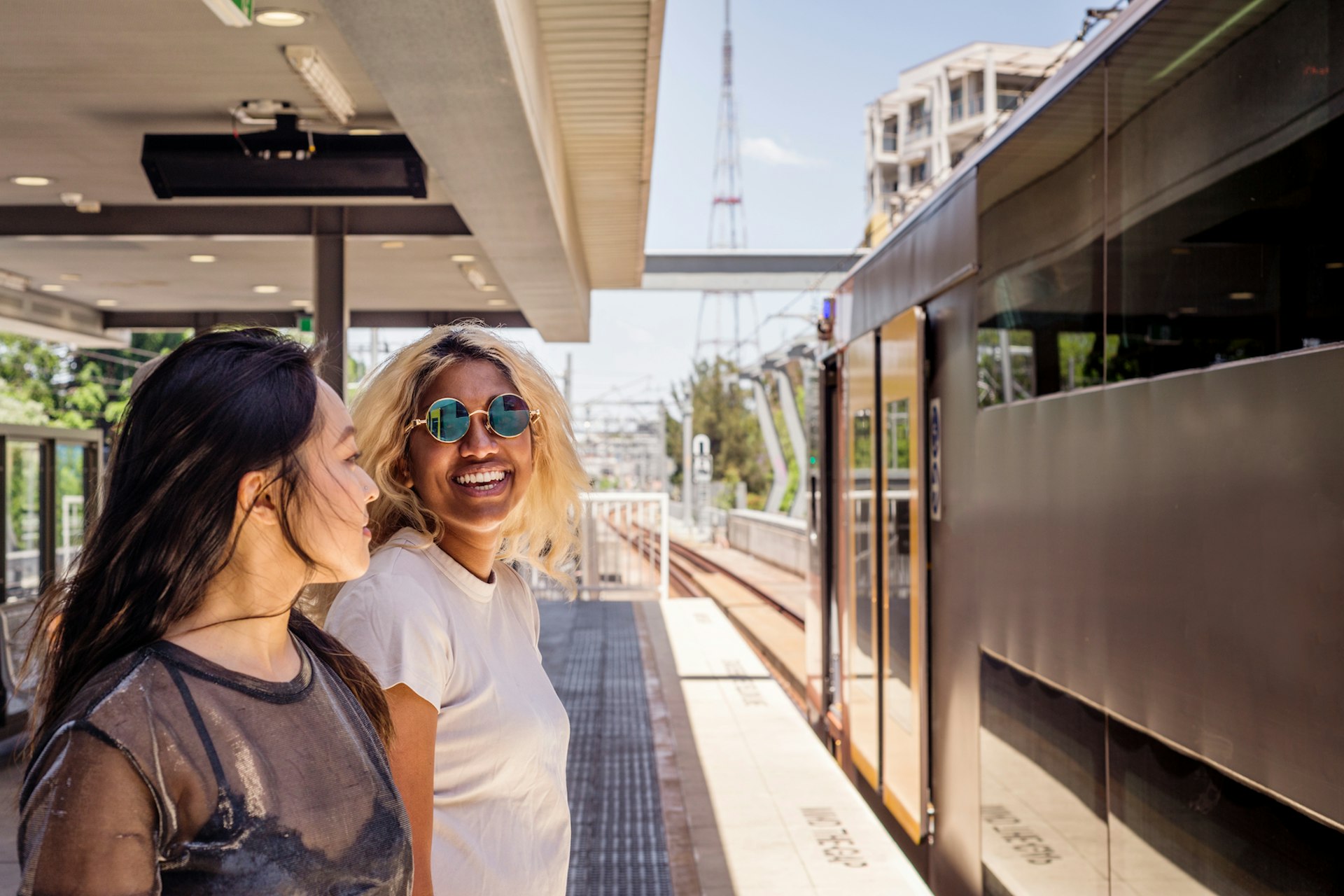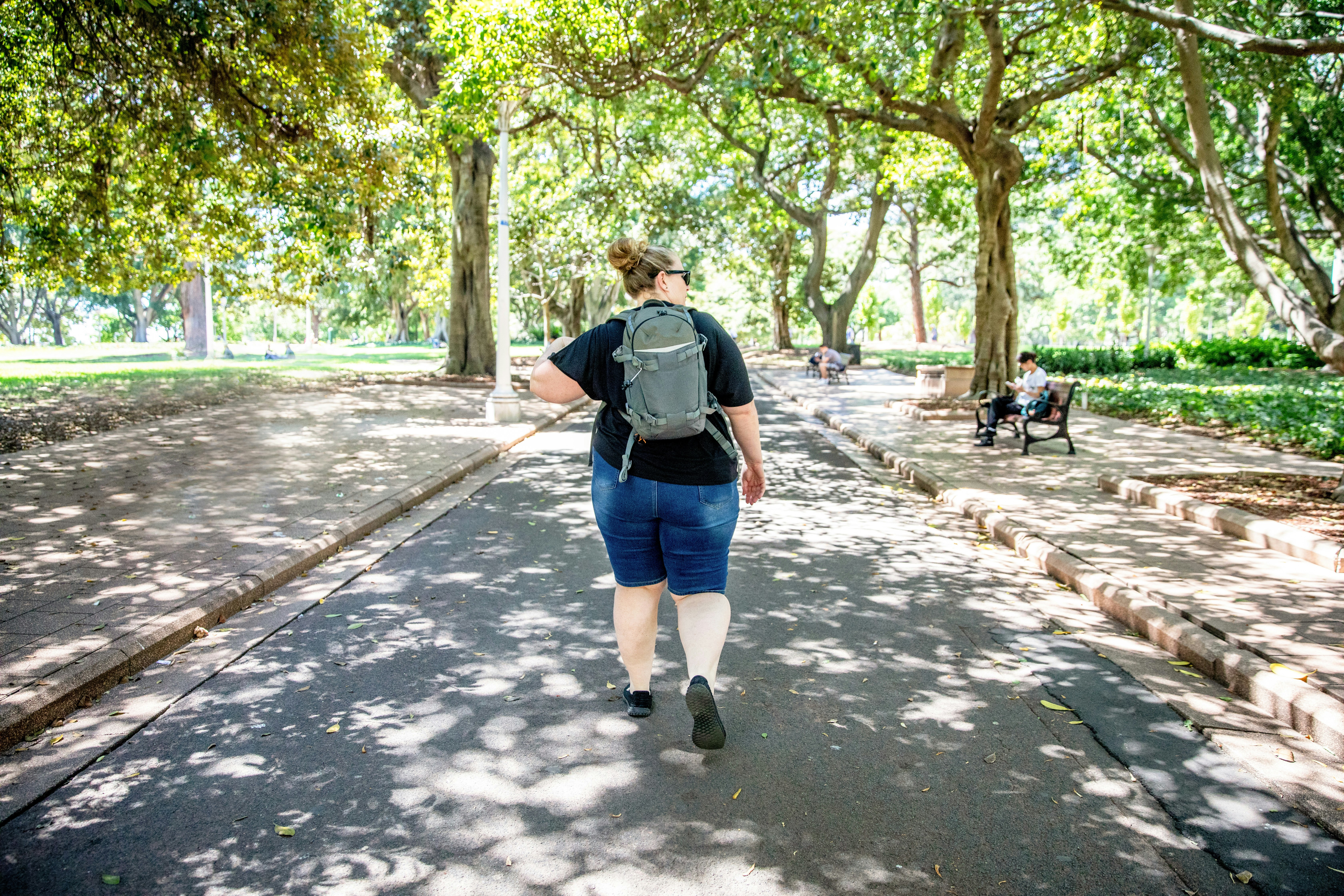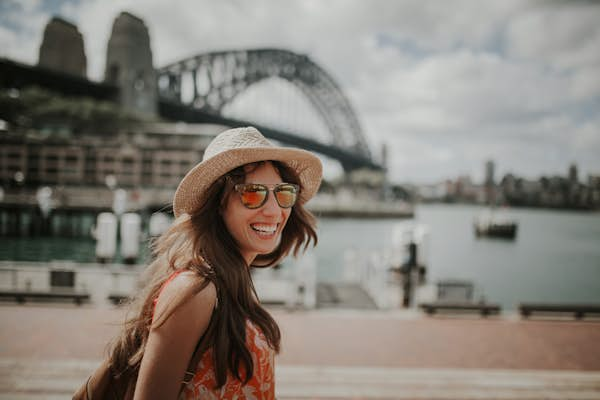Like most Australians, Sydneysiders are genuinely friendly people – they just want visitors to have a good time and take good memories with them when they go home. That said, there are a few things to know about visiting one of Australia’s most interesting cities.
Before becoming Australia, the continent was home to about 500 separate First Nations. Sydney is on the traditional lands of the Gadigal people of the Eora nation. Plan at least four days here, the length of your trip and what else you hope to see. A week is better, but of course, the longer you stay, the more you will experience this wonderfully located and extremely cosmopolitan place.
Here are some tips to help you make the most of your time in Sydney, from packing lists to planning logistics to local etiquette.
1. No need to over pack.
You won’t be embarrassed if you dress up or down in Sydney. Sydneysiders are stylish, but they prefer to keep it casual, as if they’ve stepped off a yacht on their way to the opera.
It does get cold in winter, but not as heavy a coat as winter – a warm pullover or light jacket should suffice unless it’s unusually cold. (That being said, tourists from cold-weather countries who are used to insulation and central heating may find it chilly indoors in the winter. A pair of slippers won’t go amiss.) Summers are hot and humid. It is humid. Pack an umbrella No matter what time of year you visit: it rains in this subtropical coastal city. Ideally, don’t bring plain black (we explain why later).
2. The best places should be booked in advance.
Much of what you do in Sydney will depend on the weather, so a lot of advance planning can result in last-minute itinerary changes. You probably won’t go kayaking on a secret beach off Manly in high winds, and they’re less fun in heavy rain with the sun beating down on the roof.
That said, if there are destination restaurants you really want to go to, like Quay or Oncor by Claire Smith, book at least a few months in advance. The best accommodation will also be available, especially in the high season (Australian summer months from December to February), so book as early as possible.
3. People are really friendly.
When it comes to big cities with big reputations, Sydney can be compared to London, New York and Paris. However, it seems that the combination of sunshine, space and outdoor waterfront lifestyle has made Sydney residents happy and friendly for the most part. Be prepared to be asked all kinds of personal questions whether you’re waiting for the bus or picking up some groceries at the local store. If you’re used to living somewhere where people mind their own business, it may take a few days to warm to you but you’ll soon find yourself smiling at everyone you meet on the Bondi to Bronte Walk. pass by, or ask a stranger “What’s in the bag?” Like a local.

4. Suggestions for taking public transport including ferry
Leave everyone, including the inevitable stragglers, before attempting to board the ferry, as the gangways are narrow. If you want to take photos and walk around the outside deck on the ferry, go for it – but remember that for the locals, this is their daily routine, and a great shot. Passengers climbing on them will be annoying.
Make sure you have it. opal stone Or a contactless bank card ready to be tapped at train station gates or when boarding and alighting buses. In general, locals don’t like people talking on mobile phones on public transport. Stick to texting.
5. Don’t drop any litter…seriously!
If you want to hate the locals, throw some litter on the beach, on the street or in nature. Australia has launched a campaign against littering Keep Australia beautiful, in 1968 which is still going strong. If you smoke, take your butt with you. The bins are sorted into recycling or general waste, so “Do the right thing“
6. Integrity systems are sacred.
The honesty system works well in Australia. If it’s raining and you take that standard umbrella to a local bar, you can put it in the umbrella bucket (or on the nearby floor if it’s pouring) and when you leave the bar two hours later So it will be there. However, plain black umbrellas all look the same, so bring something bright and distinctive.
7. Swearing is not meant to offend.
Swearing may be considered impolite or rude in many English-speaking countries, but in Australia, it’s quite common. Even Australian MPs have been known to drop swear bombs. He said that “So where the bloody hell are you?” Tourism campaign M&C caused some controversy when it was launched in 2006 by the Sydney office of the Sachi Group.

8. Yes, you can drink tap water.
It is OK to drink tap water in Sydney. If there is a threat of contamination, you will hear about it: it will be major national news.
9. Natural disasters and extreme weather are a real concern.
Australia is prone to climate change (see what I did there?) and extreme weather events, even the cause of which is open to debate in some places.
In the summer, there is a risk of bushfires, and with many pockets of bush in and around Sydney, your journey may be affected by the direct threat of fire or smoke particles in the air. During the 2019 and 2020 Australian bushfire seasons, 42 million acres of forest burned in southeastern Australia and ash fell on glaciers in New Zealand.
A famous poem by Dorothea McKellar – “My Country” – describes Australia as “a land of droughts and torrential rains”. Sydney has had its fair share of the latter – 2022 was the wettest year on record, with flash floods affecting the city.

10. Protect yourself from the sun and heat.
Use sunscreen even in winter. The sun is hotter and hotter below. Sunscreen is an even better idea in the sweltering summer heat, and drink plenty of water if you’re walking anywhere. See Heatstroke Symptoms (and Treatment) If someone you know is feeling sick in the sun: Immediate action is essential.
11. Swim wisely and don’t take risks.
Do not go into any body of water alone, from surf beaches with rip currents that can pull you out to sea, to rivers, lakes and ponds that may have currents or eddy currents. At the surf beach, always swim between the red and yellow flags, which indicate that lifeguards are on duty. They will place them in the safest part of the beach.
In 2021, 294 people drowned out of about 1000 “drowning incidents” (in other words, non-fatal but still harmful and frightening) in Australia, a significant increase from the previous year. Know your skill level and play it safe.
Oh, and there are jellyfish. If you are stung, rinse with water or vinegar (the latter is usually available at surf lifesaving clubs).
12. A word on scams, theft and pickpocketing
As mentioned, Sydneysiders are extremely friendly and can let travelers down their guard very easily. There’s no need to go crazy, but keep your wits about you when interacting with strangers, especially those who approach you.
As in any big city, don’t walk around with valuables on display and don’t leave your phone or bag unattended. In general, though, it’s pretty safe here.
If you receive text messages with links to a website, no matter how persuasive (ie, requiring your credit card verification) Never Click on the link. Online scams are very sophisticated, especially when you’re jet-lagged or simply in unfamiliar territory. Your bank will never send you a text with a link.
13. In case of emergency, dial 000.
Call “000” and you will be asked which service you need – police, ambulance or fire. Lifeline’s telephone crisis support Available on 13 11 14 (24 hours a day, seven days a week).
This article was first published on August 29, 2022 and was updated on October 31, 2023.
